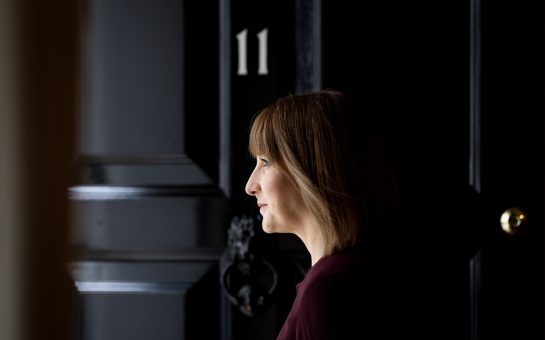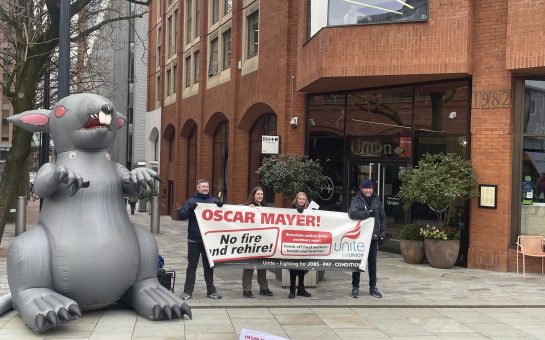The definition of insanity is doing something over and over again and expecting a different result.
The aftermath of this disastrous election has the potential to provide a huge opportunity for the Labour party.
Social media has been awash in recent days with different suggestions of which way the Labour party should go moving into the future.
Labour need to ask themselves how they are going to become electable in five years’ time.
Without being electable, they will be unable to govern and make the difference in people’s lives which they so crave. They can start by electing a pragmatic, sensible centrist leader who is firstly effective in opposition and can appeal to the broad base of voters who Boris Johnson described as “lent” them their votes.
It is these voters in Northern, working class seats who can return Labour to power after so many years in the wilderness.
The Corbyn experiment has been going for four years now where Labour has moved unapologetically to the left. While he has successfully grown the party membership especially among young people, two electoral defeats and being on the losing side of the Brexit referendum must signal that this experiment has failed.
First and foremost, Labour should look to elect a leader who is youthful and not from London. For too long, communities have felt ignored by the ‘North London elite’ and a way to begin to address this is to elect someone who has lived in and represented areas with more working class Labour values.
Furthermore, electing a woman would do wonders for Labour’s diversity platform and leave them well-placed to highlight Tory misogyny when and if it arises.
Lisa Nandy from Wigan, Angela Rayner from Ashton-under-Lyne and Jess Phillips from Birmingham Yardley would make great leaders for these reasons.
We have to make it our mission to bring Labour back to people – to bring Labour home. pic.twitter.com/K9stvATajH
— Lisa Nandy (@lisanandy) December 15, 2019
I will miss his true friendship&wise counsel, it has been a great honour to serve with Dennis in the 2015&2017 Parliaments. I don’t often say the word “legend” but in political terms it is deserved in Dennis Skinners case. True working class hero&always dedicated to the cause pic.twitter.com/ceGCb6A4A6
— Angela Rayner (@AngelaRayner) December 14, 2019
Spent yesterday dealing with the upset but today I am up and fighting back. Here is a part of the speech I made after winning my seat. Here is the story of how an opponent reported me to the electoral commission for “treating the electorate.” pic.twitter.com/qUMskTHUCo
— Jess Phillips MP (@jessphillips) December 14, 2019
They also do not represent the hard left wing of the party which now should be moved away from in the way that Salford and Eccles’ Rebecca Long-Bailey does.
Labour’s two traditional voting bases do make elections difficult for them. Often the needs of their younger, more urban, remainer voters are at odds with their traditional working class leave voting bases in the North, the Midlands and Wales.
Brexit has been an exceptionally good example of this. Labour found it impossible to straddle the diametrically opposed wishes of these two voting bases and their confusing second referendum Brexit policy meant it lost one of them in a way that has not been seen before.
Labour lost countless northern leave voting seats while the Conservatives managed to hang on to pro remain seats such as Cheltenham, Guildford and Lewes.
CENTRE GROUND VACUUM
For better or worse, Brexit will now happen and it will happen on Boris Johnson’s terms. The areas which will feel the effects the most will be these working class leave voting areas. A new Labour leader is someone who will be able to connect with these voters and highlight that Tory austerity and drastic underfunding of public services are reasons why their standard of living has fallen so dramatically.
The Conservatives will no longer be able to blame Labour for blocking Brexit, a subject which led so many of these voters to abandon their traditional voting home. With Labour no longer able to stand in the way, they can pivot to a position of being able to help communities deal with any adverse effects Brexit may bring.
With the Conservative Party moving further and further to the right in recent years, a vacuum has been created in the centre ground of politics. This void has been occupied unsuccessfully by the Liberal Democrats and various Independent Groups, but for better or worse our First Past the Post electoral system makes a multi-party parliament incredibly difficult to have meaningful effect.
Labour could win back huge swathes of voters by occupying the centre ground in politics. Sensible policies including moderate spending plans combined with moderate taxation and investment in public services can highlight Tory brutality while appearing to be reasonable, rational and compassionate on the door step. Any voters from the far left who may be put off by this will be hugely offset by the amount of voters gained.
Furthermore, their new leader must be media savvy and charismatic. A large amount of the British media leans to the right and this isn’t going away. A new Labour leader needs to develop a style which engages with Britain’s right wing media and isn’t afraid to answer their attacks.
Ignoring them entirely, as Corbyn did, will only lead these media outlets to print things which are either entirely untrue, or aren’t answered effectively. This way a message will be able to cut through, and be consumed by readers of these publications who often come from these working class communities.
Our time will come. pic.twitter.com/VAr9rAdA0f
— Jeremy Corbyn (@jeremycorbyn) December 15, 2019
On a subject that is not often spoken about, a new Labour leader could have great success if they are able to address and champion English patriotism. Patriotism has not always sat well in England in the way that it comes more naturally to the Celtic regions and for obvious reasons.
A leader who is able to promote the idea that it’s okay to be proud to be English within a framework of tolerance and respect would be immensely popular. English patriotism does not have to be owned by the far right.
Finally, there is a big role to play for grassroots Labour activists. The bubble of social media makes it very easy to only engage with people who you largely agree with and this led to massive surprises on Brexit referendum night, and now multiple general elections.
Much more needs to be done to engage with people who have different political views to understand why they have these and a leader with the broadest level of appeal will be well placed to begin this work.
After all, the subjects that unite us are far more important than the subjects that divide us.



